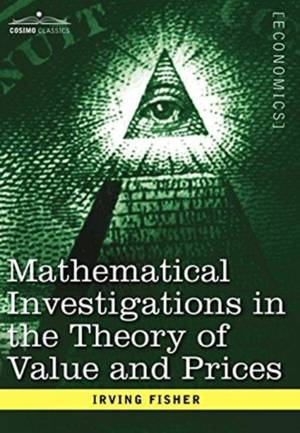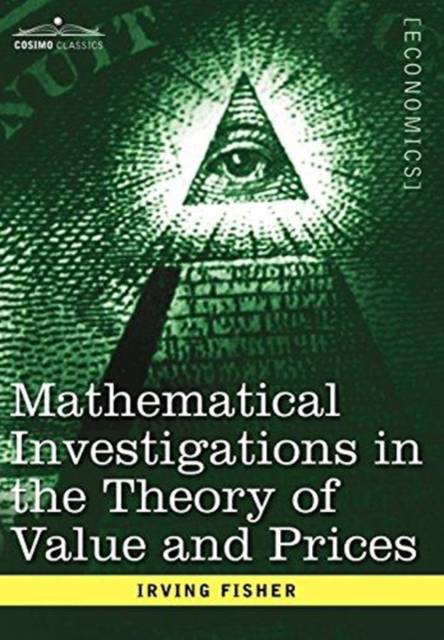
- Retrait gratuit dans votre magasin Club
- 7.000.000 titres dans notre catalogue
- Payer en toute sécurité
- Toujours un magasin près de chez vous
- Retrait gratuit dans votre magasin Club
- 7.000.000 titres dans notre catalogue
- Payer en toute sécurité
- Toujours un magasin près de chez vous
Mathematical Investigations in the Theory of Value and Prices, and Appreciation and Interest
Irving Fisher
Livre relié | Anglais
39,45 €
+ 78 points
Format
Description
Here in one volume are two classics of the foundations of modern finance from America's first celebrated economist, Irving Fisher, for whom the Fisher equation, the Fisher hypothesis, and the Fisher separation theorem are named. In 1892's Mathematical Investigations in the Theory of Value and Prices and 1896's Appreciation and Interest, Fisher explores: . how the numbers of consumers and the numbers of available commodities are more mysterious than they seem at first glance . what happens when production and consumption are examined jointly . how commodities influence one another . the relationship between appreciation and debt . formulas for varying rates of interest and appreciation . the impacts of zero and negative interest . and much more. American economist IRVING FISHER (1867-1947) was professor of political economy at Yale University. Among his many books are The Rate of Interest (1907), Why Is the Dollar Shrinking? A Study in the High Cost of Living (1914), Booms and Depressions (1932), and The Purchasing Power of Money (1912).
Spécifications
Parties prenantes
- Auteur(s) :
- Editeur:
Contenu
- Nombre de pages :
- 244
- Langue:
- Anglais
Caractéristiques
- EAN:
- 9781602069596
- Date de parution :
- 01-11-07
- Format:
- Livre relié
- Format numérique:
- Genaaid
- Dimensions :
- 152 mm x 229 mm
- Poids :
- 512 g







